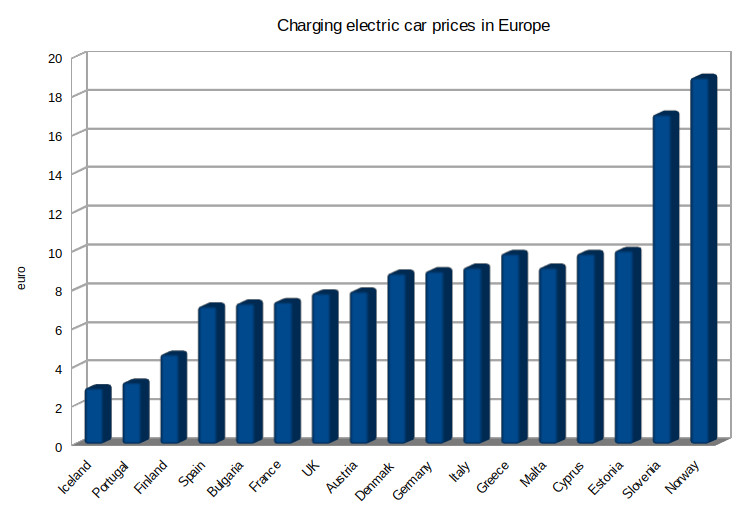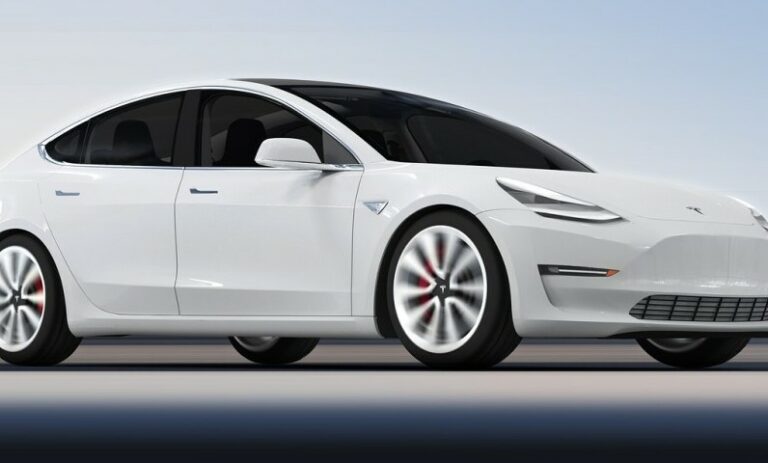When planning a trip across Europe in an electric car, knowing the charging prices can help you budget better and avoid any surprises. The European Alternative Fuels Observatory (EAFO) provides valuable insights into how much it costs to charge an electric vehicle (EV) in different countries across Europe.
Island and Portugal stand out with the lowest charging costs at public charging stations. Surprisingly, it costs just €2.89 per 100 km to charge a Tesla Model Y in Iceland. Portugal follows closely at €3.18. These low prices can make travel through these countries more affordable for electric vehicle owners.
On the flip side, Norway and Slovenia have the highest charging costs. Norway leads with a whopping €18.93 per 100 km. Slovenia isn’t far behind, with a cost of €17.02. These high costs mean it’s crucial to plan your charging stops carefully if you’re driving through these regions.
Understanding these charging prices is not just about budgeting, but also about ensuring a smooth travel experience. You’ll need to factor in these costs when planning your stops, especially if you’re covering long distances. The EAFO’s analysis typically considers a 25-minute fast-charging session for a Tesla Model 3, charging from 10% to 80% battery at public chargers. This gives you a practical benchmark for what to expect during your travels.
So, whether you are driving through the cheaper charging havens of Iceland and Portugal or navigating the pricier routes in Norway and Slovenia, having a handle on these costs can make your trip less stressful and more enjoyable.


Country-Specific Analysis: Cheapest and Most Expensive Destinations
Examining the countries with the lowest electric car charging prices reveals some interesting details. Iceland, Portugal, and Finland top the list for affordability. Iceland is the cheapest, with a cost of €2.89 per 100 km for charging a Tesla Model Y. Portugal follows at €3.18, and Finland at €4.63. These countries offer great value for electric car travelers, making them ideal for long road trips without breaking the bank.
However, the story changes dramatically when we look at the most expensive countries. Norway is the priciest, with a cost of €18.93 per 100 km. Slovenia comes next at €17.02, making these destinations more challenging for budget-conscious travelers. If you plan to travel through these countries, it’s wise to plan your routes and charging stops carefully, perhaps even considering alternative routes where possible.
Southern Europe presents a different landscape. Spain is the least expensive in this region, with a cost of €7.11 per 100 km. Other southern European countries have varied prices: Bulgaria at €7.34, Italy at €9.12, and Greece, Malta, and Cyprus all at €9.83. Although these costs are higher than in Iceland or Portugal, they are much more manageable compared to Norway and Slovenia.
Understanding these regional differences can help you plan more efficiently. For instance, if traveling from north to south or vice versa, knowing where the cheapest charging points are can save you a lot of money. Always keep an eye on the latest data and consider using apps that show real-time pricing and availability of charging stations. This information can make your journey smoother and more cost-effective.
Regional Variations and Their Implications
Charging prices vary greatly across northern, southern, and central Europe. In northern Europe, countries like Germany and France have moderate charging costs, typically between €7 and €10 per 100 km. Estonia and Germany are on the higher end of this spectrum, around €9.99, while Denmark sits at €8.81. These costs are higher than those in Iceland and Portugal but far more affordable than in Norway and Slovenia.
In southern Europe, the costs also show some variability. For example, Spain offers the lowest rates in the region, making it a favorable destination for electric car travelers. Bulgaria, Italy, Greece, Malta, and Cyprus have slightly higher but still reasonable prices, making southern Europe a relatively affordable region for EV charging.
Central Europe presents a mixed scenario. While Germany and France generally have moderate costs, other countries can vary. It’s crucial to be aware of these differences to plan your journey efficiently and avoid unexpected expenses.
The regional variations in charging costs reflect broader differences in energy markets, infrastructure, and government policies. For example, countries with abundant renewable energy sources or strong subsidies for electric vehicles often have lower charging costs. In contrast, countries with higher reliance on fossil fuels or less developed charging infrastructure tend to have higher costs.
Implications for travelers are clear: thorough planning is essential. Utilize apps and tools to find the most cost-effective charging stations along your route. Plan your travel schedule to take advantage of cheaper charging spots where possible. By doing so, you can make your journey more economical and stress-free.


